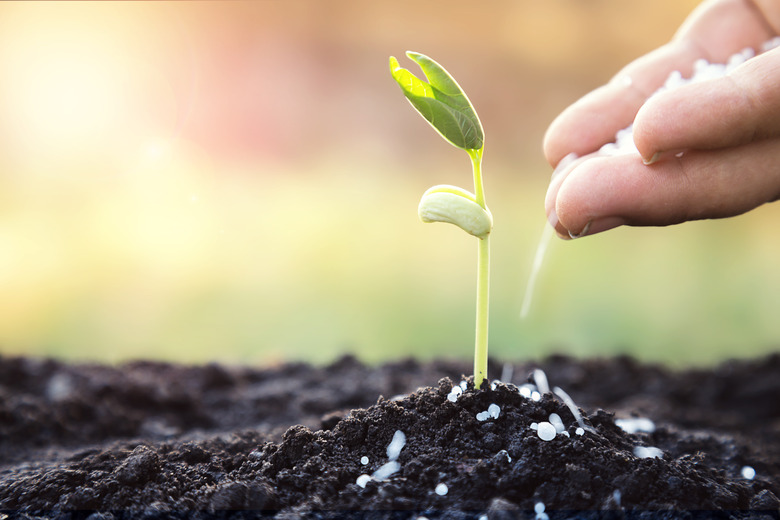Why Is Nitrogen Important For Living Things?
Nitrogen is essential for all living things because it is a major part of amino acids, which are the building blocks of proteins and of nucleic acids such as DNA, which transfers genetic information to subsequent generations of organisms. About 78 percent of the atmosphere is made of nitrogen, but plants and animals can't take nitrogen directly from the air. A process called the nitrogen cycle makes this happen.
TL;DR (Too Long; Didn't Read)
Nitrogen is an essential nutrient for plants and a significant component of proteins, which all animals need to grow, reproduce and survive. The nitrogen cycle converts nitrogen into compounds that plants and animals can use.
Humans and Animals Need Nitrogen
Humans and Animals Need Nitrogen
All human tissue – muscles, skin, hair, nails and blood – contains protein. Normal growth, cell replacement and tissue repair require nitrogen, and your body's metabolic processes need proteins in the form of enzymes. You cannot take nitrogen directly from the air, so you get it from dietary sources. Protein-rich foods include:
- meat
- fish
- legumes
- eggs
- milk
- nuts
Your body is continually recycling nitrogen from amino acids, breaking amino acids not used for protein synthesis into components including nitrogen for energy. Nitrogen also makes nonprotein compounds, such as the heme in hemoglobin, which transports oxygen in red blood cells to all parts of the body. Animals need nitrogen to grow, repair and survive the same way humans do, and they also get it from dietary sources, such as plants and other animals.
Plants Need Nitrogen
Plants Need Nitrogen
Nitrogen is essential for plants to grow and survive. Without proteins – some as structural units, others as enzymes – plants die. Nitrogen makes up a large part of chlorophyll, which plants need for photosynthesis, the process of using the sun's energy to make sugars from water and carbon dioxide. Nitrogen forms part of energy-transfer compounds such as ATP (adenosine triphosphate), which lets cells conserve and use energy released via metabolism. Plants also need nucleic acids such as DNA to grow and reproduce. Plants get nitrogen in a different way than animals, taking it from water and soil in the form of nitrates and ammonium. Plants lacking in nitrogen turn yellow and stop growing, and they bear smaller-than-average fruits and flowers.
The Nitrogen Cycle
The Nitrogen Cycle
The first step of the nitrogen cycle is nitrogen fixation. Special bacteria use an enzyme known as dinitrogenase to convert nitrogen gas to ammonia. Next, nitrification converts the ammonia into nitrite ions, which the plant roots absorb as nutrients. Animals take in their nitrogen by eating the plants. Decomposition of plants and animals and the release of animal waste, create ammonia in the soil. Finally, denitrification uses other bacteria to convert the ammonia back into gaseous nitrogen gas, which is released into the atmosphere where the nitrogen cycle starts again.
Cite This Article
MLA
Gillespie, Claire. "Why Is Nitrogen Important For Living Things?" sciencing.com, https://www.sciencing.com/why-nitrogen-important-living-things-4609019/. 10 April 2018.
APA
Gillespie, Claire. (2018, April 10). Why Is Nitrogen Important For Living Things?. sciencing.com. Retrieved from https://www.sciencing.com/why-nitrogen-important-living-things-4609019/
Chicago
Gillespie, Claire. Why Is Nitrogen Important For Living Things? last modified August 30, 2022. https://www.sciencing.com/why-nitrogen-important-living-things-4609019/
